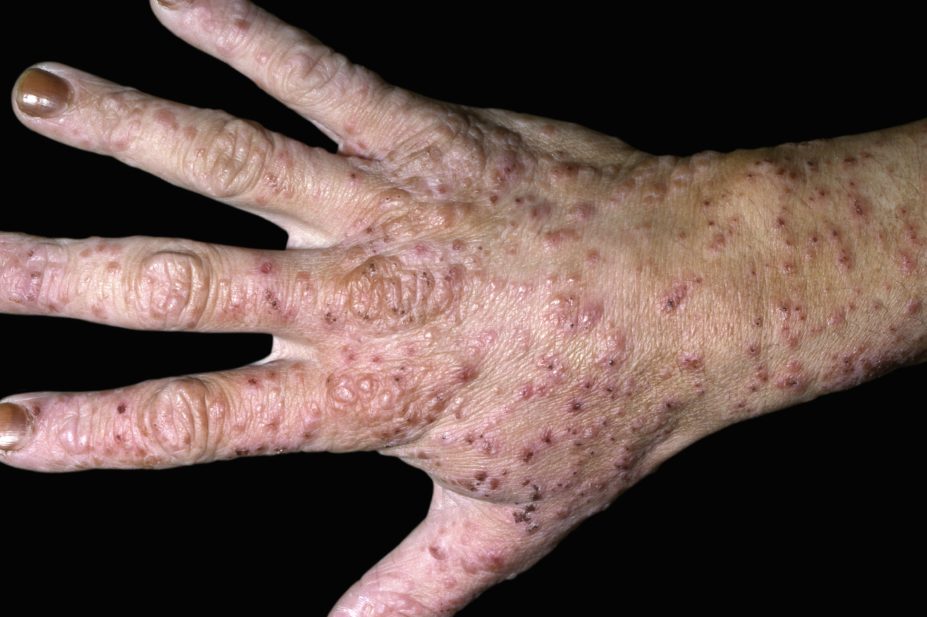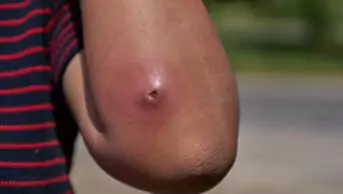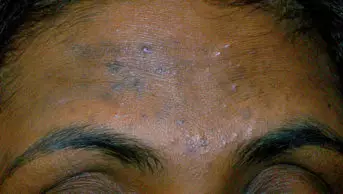
Science Photo Library
Abrocitinib, an oral Janus kinase 1 selective inhibitor, is effective and well-tolerated in patients with moderate-to-severe atopic dermatitis (AD), a study in JAMA Dermatology has suggested (3 June 2020)[1]
.
The phase III trial included 391 patients aged 12 years and over with moderate-to-severe AD for at least a year and inadequate response to topical medicines given for at least 4 weeks or prior systemic therapy. They were randomly assigned to abrocitinib 200mg or 100mg once-daily, or placebo.
After 12 weeks, the proportion of patients whose AD was clear or almost clear and had improved at least two grades (out of five) on the Investigator Global Assessment scale was 38.1% in the 200mg group, 28.4% in the 100mg group and 9.1% in the placebo group. The proportion achieving at least a 75% improvement in the Eczema Area and Severity Index score was 61.0%, 44.5% and 10.4%, respectively. Serious adverse events were reported for 1.3% of patients in the 200mg group, 3.2% in the 100mg group and 1.3% in the placebo group.
An injectable biologic systemic therapy, dupilumab, has previously been licensed for moderate-to-severe AD. However, not all patients respond, some lose response over time, and some may be unwilling to receive injections, the researchers explained.
The researchers said that future research should include a greater proportion of “adolescents and non-white patients and explore the use of abrocitinib in combination with topical therapies”.
References
[1] Silverberg J, Simpson E, Thyssen J et al. Efficacy and safety of abrocitinib in patients with moderate-to-severe atopic dermatitis: a randomized clinical trial. JAMA Dermatol 2020. doi:10.1001/jamadermatol.2020.1406


